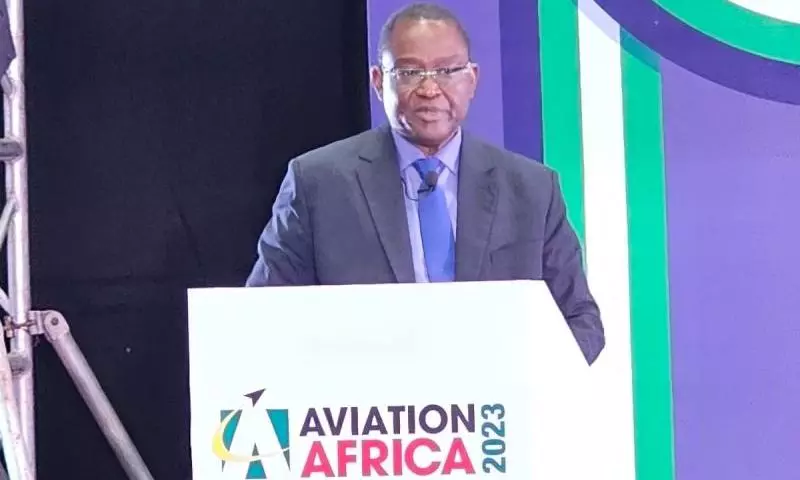AFRAA chief talks about blocked funds, SAF
Abdérahmane Berthé, Secretary General, AFRAA was talking at the African Aviation Summit in Abuja, Nigeria

Abdérahmane Berthé, Secretary General, African Airlines Association (AFRAA) made an intervention at the 2023 Edition of the African Aviation Summit in Abuja, Nigeria themed Painting the big picture for African airlines.
Berthé’s intervention included a presentation and participation in a panel session. "The presentation covered the state of the airline industry, the economic trends, challenges and opportunities for the airline industry," says an official release.
On connectivity, the outlook is positive – the total number of intercontinental routes operated by African airlines exceeded the pre-Covid levels since October 2022. "In some major airports (Johannesburg, Nairobi, Addis Ababa, Lusaka, Cairo, Casablanca, Abidjan and Lomé), the intra-Africa connectivity has reached or exceeded pre-Covid level since December 2022."
In terms of revenue loss attributed to Covid-19, Berthé said: "2023 is expected to be a better year compared to 2022. Amid the high oil price above the pre-Covid levels of 2019, the jet fuel price continues the upward trend, going up by over $22 in one month from July to August."
On cargo, the average market share of African airlines per cargo origin is 31 percent year-to-date, he added. "North Africa comes first with 37 percent, followed by East Africa with 30 percent. The highest cargo traffic growth year-on-year is in North Africa with 21 percent."
Among the main challenges facing the airline industry, Berthé said, is the issue of blocked funds. "The total blocked funds reported by six AFRAA member-airlines in 15 countries (13 in Africa and two outside Africa) is approximately $339.1 million at the end of March 2023. We call upon governments to consider aviation as a priority sector and reduce the level of blocked funds.”
As the global aviation industry focuses on sustainable aviation Fuel (SAF), Africa has an opportunity to act as a leader in feedstock production, Berthé said . "However, there are concerns about the SAF production in volume, accessibility at airports, and cost, which is currently high. AFRAA is engaged to work with stakeholders on actions towards the 2050 Net Zero emissions goal.”


